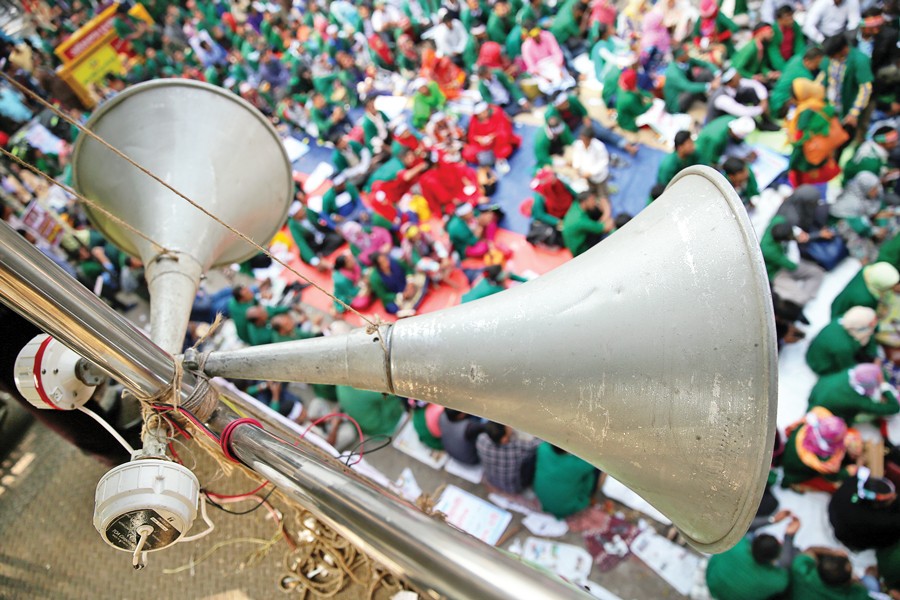
Published :
Updated :

Dhaka is increasingly becoming uninhabitable because of severe noise pollution. According to a report by the United Nations Environment Programme (UNEP) released in 2022, Dhaka has the highest level of noise pollution among the capital cities in the world. The World Health Organization (WHO) recommends the noise levels in residential areas to be below 55 decibels during the daytime and 40 decibels at night whereas Dhaka's average noise level ranges between 70 and 80 decibels and peaks at a staggering 119 decibels.
As Dhaka is one of the most densely populated cities in the world, the roads here are filled with vehicles. Most of these vehicles are equipped with hydraulic horns which are one of the main reasons for Dhaka turning so unbearably noisy. Although the High Court has banned hydraulic horns, they are still widely available. Section 45 of the 2018 Road Transport Act provides for a three-month jail term or a maximum of Tk 10,000 fine or both for using horns above the acceptable noise levels.
But this law is neither followed nor enforced by anyone. Unnecessary honking has turned into such a common occurrence that city dwellers remain unfazed by it. Unnecessary honking is generously multiplying the level of noise pollution.
Loudspeakers are also used almost everywhere in Dhaka. In many social, religious and political events, loudspeakers are used unnecessarily, disturbing the peace and raising the noise level of the areas concerned. Bus terminals can also be seen using loudspeakers to communicate with the bus drivers unnecessarily all day long. Moreover, people often blast music on loudspeakers, disturbing everyone in that area as well as playing a significant role in causing noise pollution.
To most people, New Years, national and religious celebrations are wasted without fireworks. But they ignore the fact that fireworks are very harmful for our environment. Fireworks, although not used every day, still contribute greatly to the increasing noise pollution.
A few people are aware that to address sound pollution, there are Road Transport Act and the Noise Pollution Control Rules 2006 (NPCR), which restrict the sound levels during the day to a range of 50 decibels to 75 decibels, depending on the area type - silent, residential, commercial, industrial, or mixed. At night, this range is reduced to 40 decibels to 70 decibels. Law enforcement agencies are careless about these rules and do not stop people from violating them.
Experts believe if noise pollution keeps rising at this rate, by 2035, 45 per cent of the people will start suffering from hearing difficulties. It is high time we became cautious about noise pollution and took necessary steps to stop this menace. Laws on noise pollution have to be strictly enforced. Ensuring that hydraulic horns are off the streets, fireworks are off the markets and unnecessary use of loudspeakers is met with appropriate consequences can be highly effective in reducing noise pollution. The government should initiate the move right now.
Along with the government, people have also to be aware of the risks of noise pollution and try to stop it. The government can play a significant role in making people aware of its ill effects by conducting campaigns against noise pollution, including sensitising about risks and preventions of the menace. The media also bear the responsibility to make people aware of noise pollution through news stories, features, articles etc. The situation of Dhaka is already highly concerning and if efforts are not initiated to address the problem, the capital will cease to be a habitable city.
rahmansrdk@gmail.com


 For all latest news, follow The Financial Express Google News channel.
For all latest news, follow The Financial Express Google News channel.